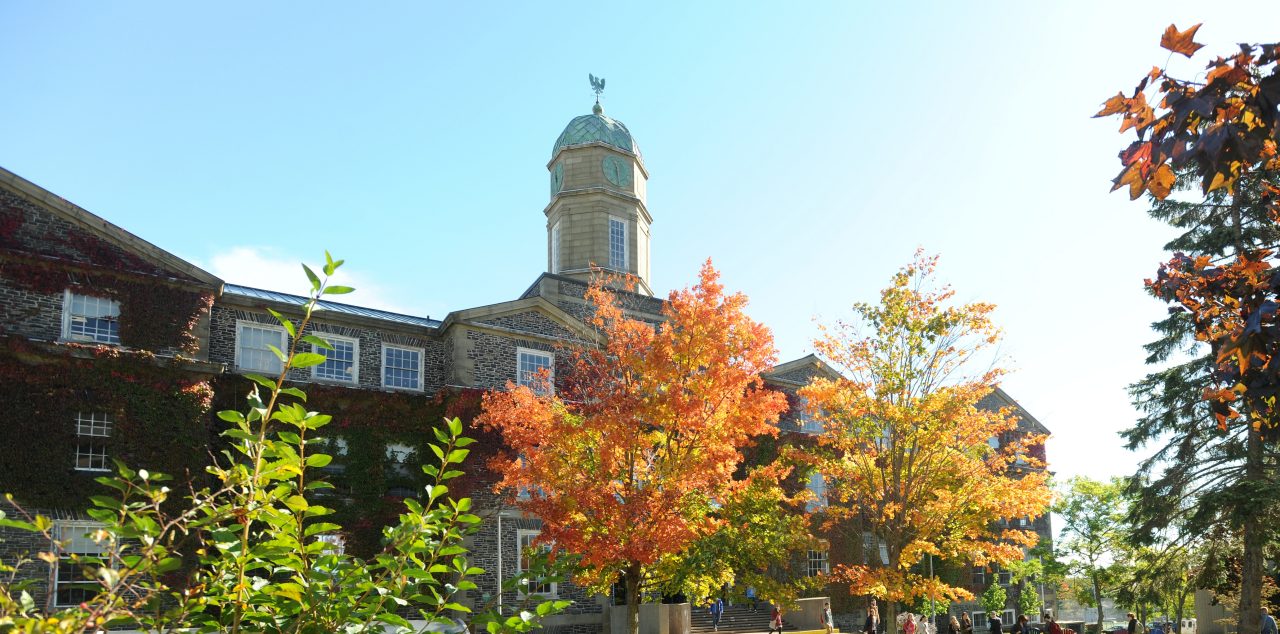Scholarship at a glance
Value: $10,000 per year for up to two years
Scholarship type: Entrance
Degree level: Thesis-based master's
Available to: Canadian or international students
Description
The Nova Scotia Graduate Scholarship program provides over $3 million per year in funding to research graduates at Dalhousie for innovative work aligned with or advancing Nova Scotia priorities. The objectives of this award are to attract and retain top-quality research graduates, as well as to encourage exploration, discovery, and innovation in research priority areas for Nova Scotia. As a result, eligibility requires that you have not started your intended program of study prior to December 31 of the year of the competition, and the intended research must align with one or more research area priorities.
Master’s students may hold NSGS funding for up to 24 months, but not past the end of their second year in program. Master’s students who plan to transfer to a PhD at Dalhousie without completing their thesis may continue to hold NSGS funding at the master’s level for the original eligible duration of the award. If you wish to hold doctoral level NSGS funding, you must apply for a doctoral scholarship before officially transferring into the doctoral program.
A brief description of the priority research areas are provided below to guide applicants when providing your NSGS alignment justification. Note that NSGS funds are intended to advance innovative research in these areas with a focus on exploration, discovery and innovation. The descriptions provided here are intended as guidelines, not prescriptive limitations. Justification must be provided as to how your research will contribute to innovation or advancement in your selected priority area
Ocean Science and Technology
• Activities related to the science, management, health, or resources of oceans and other marine bodies. This might include activities ranging from policy development to technology creation, to impact analysis and ocean health at the provincial or global level.
Information, Computer Science and Technology (ICT)
• Activities related to the management, analysis or manipulation of information, artificial intelligence, big data, communications, and the broad fields of computer science, engineering and information technology development.
Clean Technology (including Materials Science and Engineering)
• Activities related to clean technology, resource development and management, new material/process development, process optimization, evaluation of impact and live cycles of products and processes, and many fields integrating the concepts of sustainability into the development or application of technology.
Financial Services
• Activities related to financial modeling, management, security systems, predictive analysis and artificial intelligence, financial policy analysis and resource management, and broader fields exploring innovation within the broader financial services field.
Life Sciences
• Broader activities related to general life sciences, biological systems and communities, biochemistry, agriculture, biophysics, and activities generally involving the living organisms and the impact of artificial or environmental variables.
Aerospace & Defense
• Activities broadly related to defense or aerospace, including but not limited to control systems and material development for transportation systems and unmanned vehicles, performance testing, shockwave analysis, secure communications, system integrity analysis, policy analysis, and broader activities generally linked to aerospace or defense.
Health & Wellness
• Broader activities related to human health and wellbeing, including efficacy studies, impact analysis, hands-on and theoretical studies, policy development, bioethics, practice development and analysis, environmental evaluation, physical and mental well-being, and any other activities generally involving health and wellness as one of the core impacts or outcomes of the work.
Resource Sector
• Activities related to resource development and management, ranging from technologies and processes used for resource extraction and conversion, to policies and the impacts these activities have on communities and the environment. The resource sector is intended to be defined broadly, including but not limited to the development of raw materials, energy, food, etc., with applicable activities ranging from exploration to extraction, to management, distribution, and sustainability.
Social Innovation
• Activities broadly related to social innovation, including but not limited to international and domestic development, legal and political systems, public policy, sociocultural constructs and institutional frameworks, and the collection of social information. Activities may also include the study of languages, cultures, and history in local, national, and global social contexts, understanding that such knowledge and advanced analysis can often support the exploration or discovery phases, as well as the implementation, of social innovation.
Eligibility criteria
- You must not be currently enrolled in a thesis-based master’s program.
- Your intended research must align with one or more of the research priorities listed above as identified by the province of Nova Scotia.
Conditions and honorary awards
- All NSGS-M awards are conditional upon the continued financial support of the NSGS program by the Nova Scotian government.
- For new awards issued from January 2026 onward, NSGS-M will only become honorary if a student transfers to a PhD program and holds a Tri-agency Doctoral award.
Application overview
The application and selection process for this scholarship is now being managed at the Faculty level. Please contact your intended program of study after October 15, 2025 for more information.
